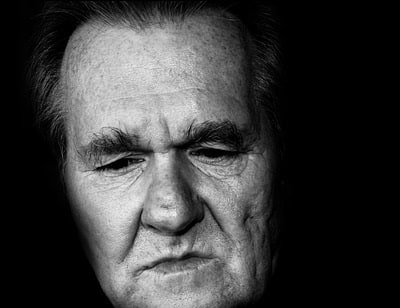Depression among the elderly has been found to increase risks of dementia, as well as sometimes also constituting an early stage symptom of Alzheimer’s disease.
In fact, a study from the American Medical Association (AMA) published in May 2012 revealed a positive correlation between symptoms of depression manifested during midlife or late life and higher risks of developing dementia. Although often overlooked because associated with getting older, depression is a serious symptom that ought to be taken into account to ensure the wellbeing and mental health of older generations. Symptoms of depression are not always easy to identify, making it harder for relatives, friends and carers to provide the additional support needed, and thus help reduce the risks of developing dementia, and notably Alzheimer’s disease.
What is depression?
Depression is a common mental illness and is becoming increasingly common amongst the elderly with 1 in 5 older people are affected by depression living at home and 2 in 5 living in care homes. It does not discriminate and can affect anyone from any culture, background or age but the elderly are more affected than any other age group, mostly due to the following reasons:
- Increased chances of isolation
- Loss of self-worth
- Bereavement
- Other health problems affecting morale
Depression manifests itself in many ways, common symptoms being:
- Sadness and feelings of abandonment
- Fatigue
- Weight loss
- Loss of interest in hobbies and activities
- Insomnia
- Increased use of alcohol and/or other substances
Although family and friends will pay close attention to person they caring for, they can sometimes remain unaware that their loved ones are afflicted. With this condition, it makes caring for an older person much more difficult as the depression causes them to be unfocused, fatigued and neglecting personal care. Older people being more likely to be affected by depression when being cared for in a care home, making sure that home care services are opted for when possible would help reduce the risks of depression, allowing the client to remain in their own familiar environment and preserving their independence as much as possible.
What is dementia?
Dementia is a decline in mental ability, which mostly affects memory, perception and problem-solving as well as cognitive thinking. Much like depression, this disease can affect anyone, and increasingly older people, with a growing number of individuals being diagnosed each year as the baby boom generation grows older. As you can imagine, caring for someone with dementia is incredibly difficult as the condition worsens, especially when they lose the ability to speak and communication becomes very limited. Simple day-to-day things become difficult, such as feeding and cleaning themselves, which is when it becomes crucial for health, safety, and comfort reasons to seek adequate dementia care services.
How to help older people suffering from depression
Support Groups Both people suffering from depression and their loved ones and/or caregivers can find joining a support group helpful and encouraging, enabling them to share their stories, exchange advice, and seek reassurance in realising they are not alone. Such groups can easily be found online or within your local community. Treatment & Therapy for Depression There is medication available that can help contain and manage depression, depending on the individual, which can help them regain control and motivation. GPs and therapists highly recommend daily walks in the outdoors, keeping active and pursuing hobbies as an effective way of combating depression. Seeing a therapist or joining group therapy can also be a great alternative to reduce isolation by providing an opportunity to meet new people and open up about depression, hereby engaging in a mutual support system which will in turn participate to enhancing self-esteem. Unfortunately, there is currently still no cure for dementia or Alzheimer’s, other than treating it with medication if the cause is a protein deficiency to the brain cells or with surgery, if caused by some form of head trauma, yet both can only manage or maintain the symptoms to an extent. Patients diagnosed at an earlier stage are recommended to take up regular exercise and various types of therapy to help keep their body and mind sharp, to help diminish the development of the disease. Indeed, recommended un-medicated treatment methods for these forms of dementia are extremely similar if not identical to those of depression, reinforcing the association of both conditions. Professional Home Care Services Some people are cautious about hiring a professional carer but they can be great support and assurance, not only for the client, but also for their entourage. When an older person shows symptoms of depression, home care services such as social companionship care services, with which a healthcare professional not only provides care but also emotional support to your loved one hereby creating a trustworthy relationship could significantly help them get through such a challenging time. Indeed, building that close compassionate relationship while helping them through that difficult period and encouraging them through treatment and therapy could thus also decrease the likelihood of developing dementia. If you have noticed such symptoms or conditions affecting one of your loved ones, do not hesitate to get in touch with a member of a friendly team to discuss the various ways in which we can help them, as well as you. Alternatively, you can also give us a call on 0800 688 8866 for more information and to discuss your situation further.

